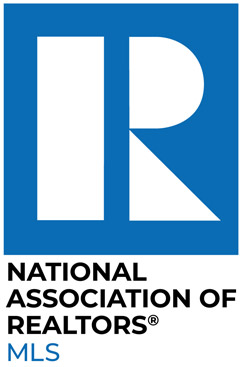Selling your Tampa, FL home can be both exciting and nerve-wracking. While envisioning new beginnings is thrilling, the home inspection process can naturally stir up some anxieties. Fear not! With a little preparation, a good real estate agent at your side, and this handy checklist, you can approach inspection day with confidence.
How to Prepare for a Home Inspection: A Checklist for Tampa, FL Homeowners From a Real Estate Agent
Conduct a Pre-Inspection Walkthrough
Before the official inspection, it’s wise to conduct a self-guided pre-inspection walkthrough of your home. This step allows you to identify and address potential issues that an inspector might flag. Your real estate agent can tell you if there’s anything in particular that Tampa, FL buyers are concerned about at the time you decide to sell, but, in general, pay special attention to common problem areas.
Foundation
Look for cracks, uneven floors, or signs of moisture around the foundation. Make sure there are no areas of standing water around the foundation.
Exterior
Inspect your roof for missing shingles, loose flashing, or sagging areas. Make sure the gutters are clear and there’s no sign of rot. Stand back from the home and just check on its curb appeal: do you notice mold, moss growth, or rotting wooden frames around doors and windows?
Wall and Ceiling
Check for cracks, bulges, or water stains on walls and ceilings. These could indicate underlying structural issues or moisture problems. While you’re up there, be sure to peek in the attic and look for missing insulation, holes, signs of squirrels or mice, or standing water.
Plumbing
Check for leaks under sinks, around toilets, and behind appliances. Look for signs of water damage on floors, walls, and ceilings. Ensure faucets turn smoothly, shower valves function correctly, and toilets flush without issue. Replace any worn-out or leaky fixtures before the inspection.
Electrical
Check for overloaded outlets, especially in kitchens and bathrooms. Note where you’ve been forced to use extension cords or power strips as permanent solutions (if you have). Look for exposed or damaged wiring, especially in attics, basements, and crawl spaces, and ensure all smoke detectors and carbon monoxide alarms have fresh batteries and are functioning properly. Test all electrical outlets and light switches to confirm they operate safely. Mark any that aren’t working.
HVAC
Make sure that all visible ductwork looks good, and change out the filters. Make sure you’re getting reasonably cool/warm air out of your system.
Windows and Doors
Check that all windows and doors open, close, and lock smoothly. Look for signs of wood rot or decay, especially in older homes, as Tampa, FL’s humid climate can be hard on some materials. Ensure that all seals and weather-stripping are intact to prevent air and water leaks.
2. Make Your Decision
Now that you know what the issues are, you’re ready to talk to your real estate agent before the home inspection and make a decision. Your choice is whether to address issues identified in a home inspection before listing or simply have your real estate agent lower the asking price. This can be a tricky trade-off, so always talk with an experienced real estate agent before deciding.
The Repair Route
Resolving the issues can enhance the home’s appeal to buyers, which means you can command a higher selling price. This proactive approach also means you don’t risk the issue worsening between the home inspection and the actual sale, which can cost you down the line.
At the same time, repairs can be financially demanding, and there’s no guarantee that buyers will value the fix enough to pay more. In some cases, lowering the asking price might prove more cost-effective.
Lowering Your Price
By setting a more competitive price, you may be able to attract a wider pool of potential Tampa, FL buyers and expedite the sale process. However, the obvious downside is receiving less money for your property. Additionally, if you have too low a price, you could inadvertently send a negative message to buyers about your home’s overall condition.
Advice From Your Real Estate Agent: How to Decide
First, how severe and expensive is the issue? Addressing minor concerns like a cracked tile or leaky faucet might be more worthwhile than tackling major problems like foundation troubles or roof leaks, where a price reduction might be more prudent.
Market conditions also weigh heavily in the decision. A sluggish market means you want a lower price to entice buyers, whereas a thriving market might allow you to leverage repairs to get a higher selling price.
Finally, your financial situation must be factored in. If repairs fit comfortably within your budget, they might be a wise investment. However, if you have a lot of financial constraints or simply need cash right away, it might be smarter to just lower the asking price.
3. Ensure Easy Access to Key Areas
Inspectors need unobstructed access to various areas of your home, including the attic, basement, crawl spaces, electrical panels, and HVAC systems, so ensure that these areas are easily accessible by clearing any clutter or obstructions. For instance, if your attic entrance is in a closet, remove any clothing or stored items that might impede access.
4. Keep Your Cool During the Home Inspection
While it’s courteous to be present during the inspection, avoid hovering over the inspector or getting defensive about their findings. Talk with your real estate agent about what to say to the home inspector, but, in general, just be upfront about any known issues or repairs: even minor ones. And don’t panic if the inspector identifies minor issues that you missed. Remember, a well-maintained home with minor fixable issues is far more appealing than one with hidden problems.
Follow these steps, and you’ll be well-prepared for a home inspection. To learn more and sell your home quickly in Tampa, FL, you need a qualified local realtor. Talk to the RE/MAX Florida Team now for experienced help, and get your home sold.













